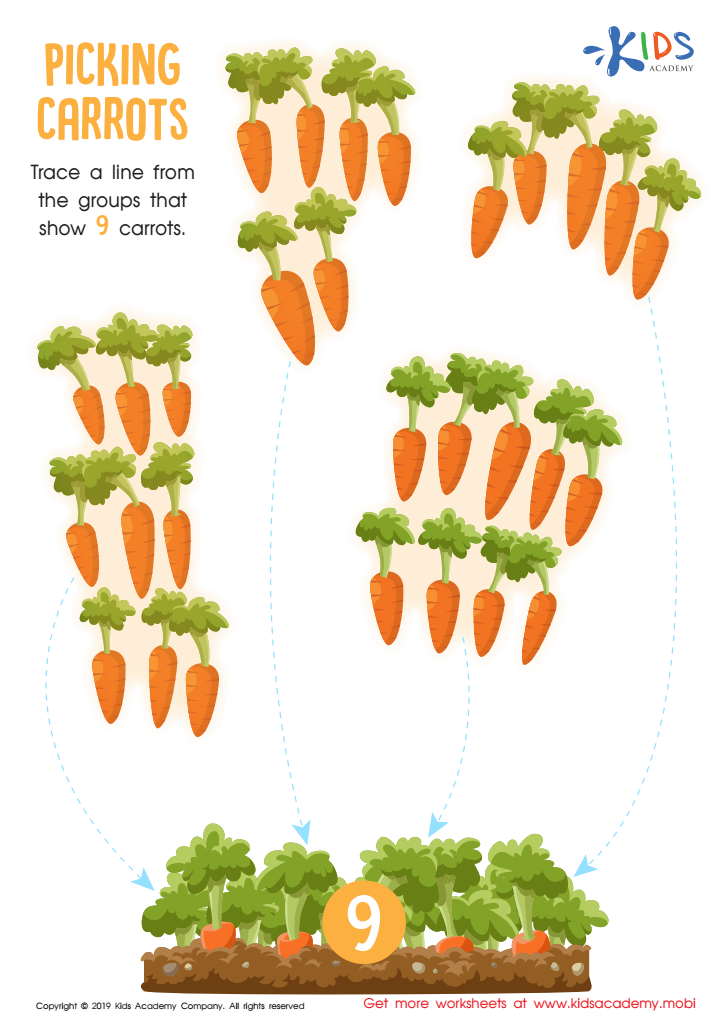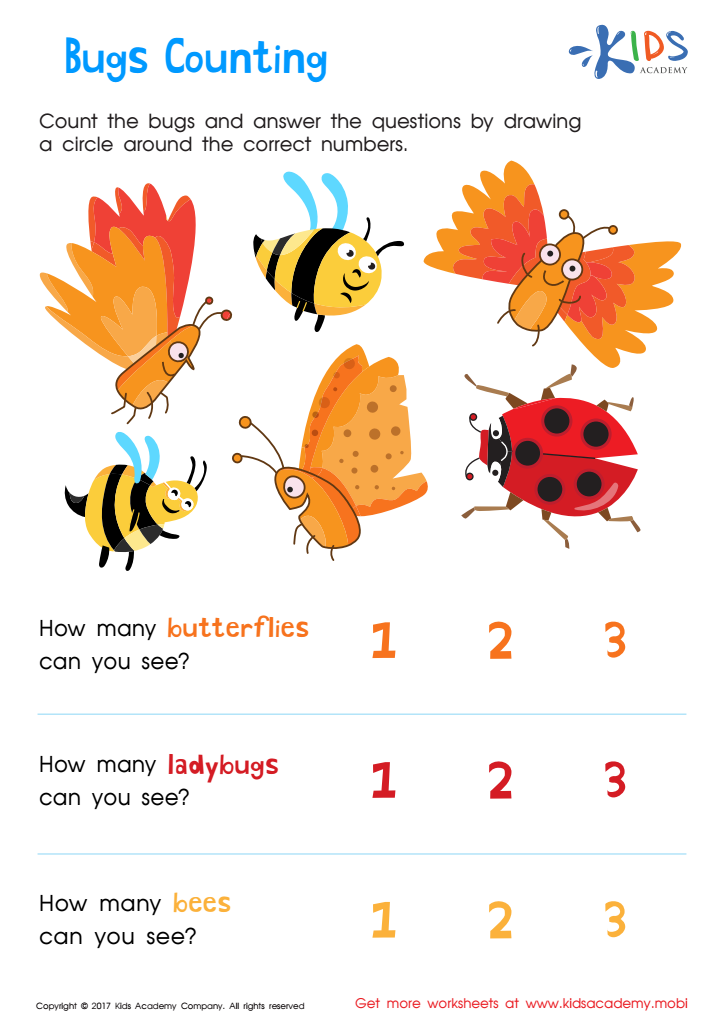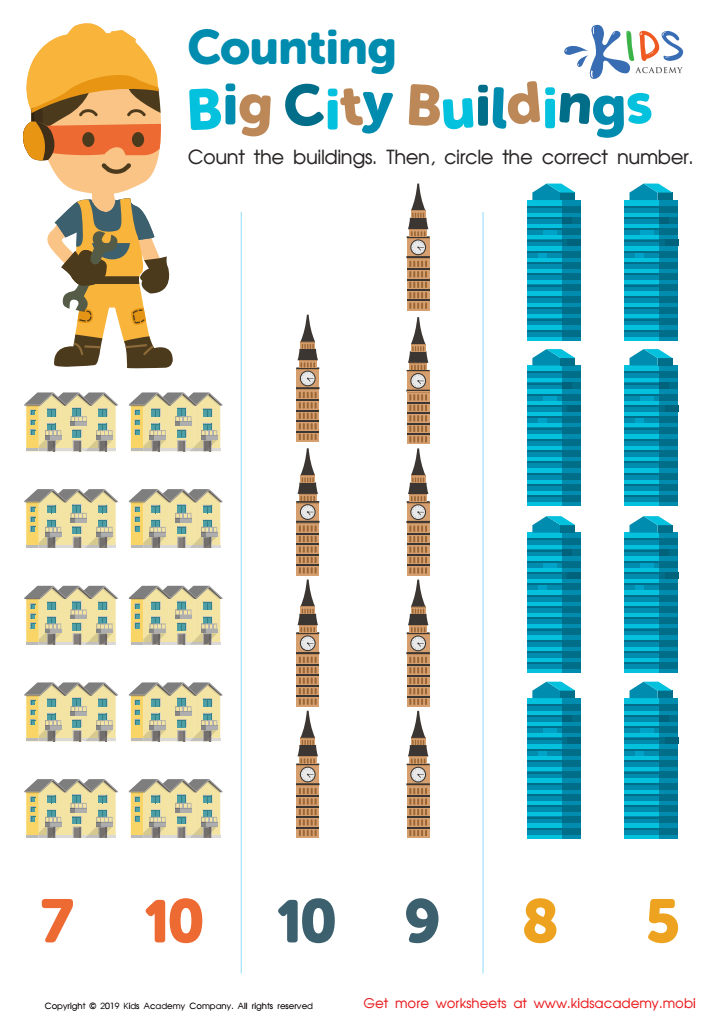Understanding Quantities Easy Numbers Worksheets for Ages 5-7
3 filtered results
-
From - To
Welcome to our "Understanding Quantities Easy Numbers Worksheets" designed for kids aged 5-7! These fun and engaging worksheets help young learners grasp the concept of quantities through colorful visuals and interactive activities. Perfect for reinforcing early math skills, each worksheet encourages children to compare numbers, count items, and identify larger or smaller quantities effortlessly. With various exercises tailored to develop critical thinking and number recognition, educators and parents can easily integrate these resources into daily learning. Spark your child’s curiosity about numbers and sets with our thoughtfully crafted worksheets to build a strong foundation for future mathematical success!


Picking Carrots Worksheet


Bugs Counting Worksheet


Counting Big City Buildings Worksheet
Understanding quantities and easy numbers is crucial for children aged 5-7, as it lays a strong foundation for their mathematical development and overall cognitive skills. During these formative years, children begin to develop a conceptual understanding of numbers, counting, and basic arithmetic, which are essential skills for later learning.
Engaging parents and teachers in nurturing this understanding fosters a supportive environment that encourages exploration and discovery. Children who grasp concepts such as quantity and simple numerical relationships build confidence in their abilities, enhancing their problem-solving skills and critical thinking. It's also a key time for establishing number sense, which allows children to make connections between numbers and their meanings in real-world contexts.
Furthermore, early understanding of quantities aids in literacy development, as many reading activities involve numerical concepts. By working together, parents and teachers can create learning experiences that incorporate fun, hands-on activities, such as counting games and everyday problem-solving scenarios. This collaborative approach not only enhances children's learning but also strengthens the home-school connection, ensuring consistent support for each child’s educational journey. Ultimately, prioritizing understanding quantities and easy numbers sets the stage for future academic success, fostering lifelong learners.

 Assign to My Students
Assign to My Students
















